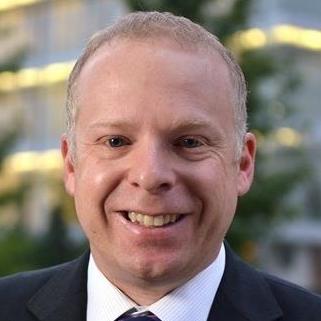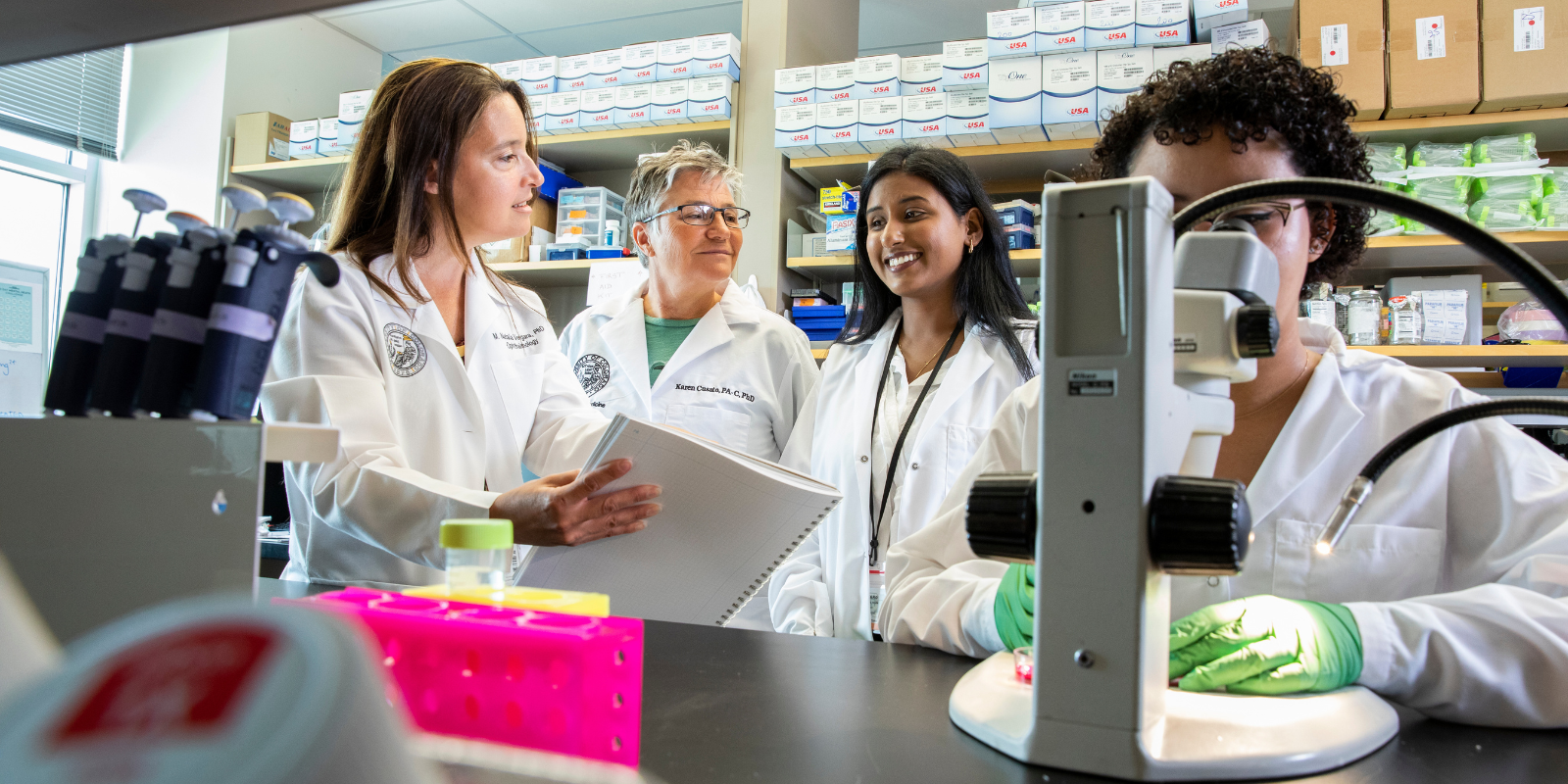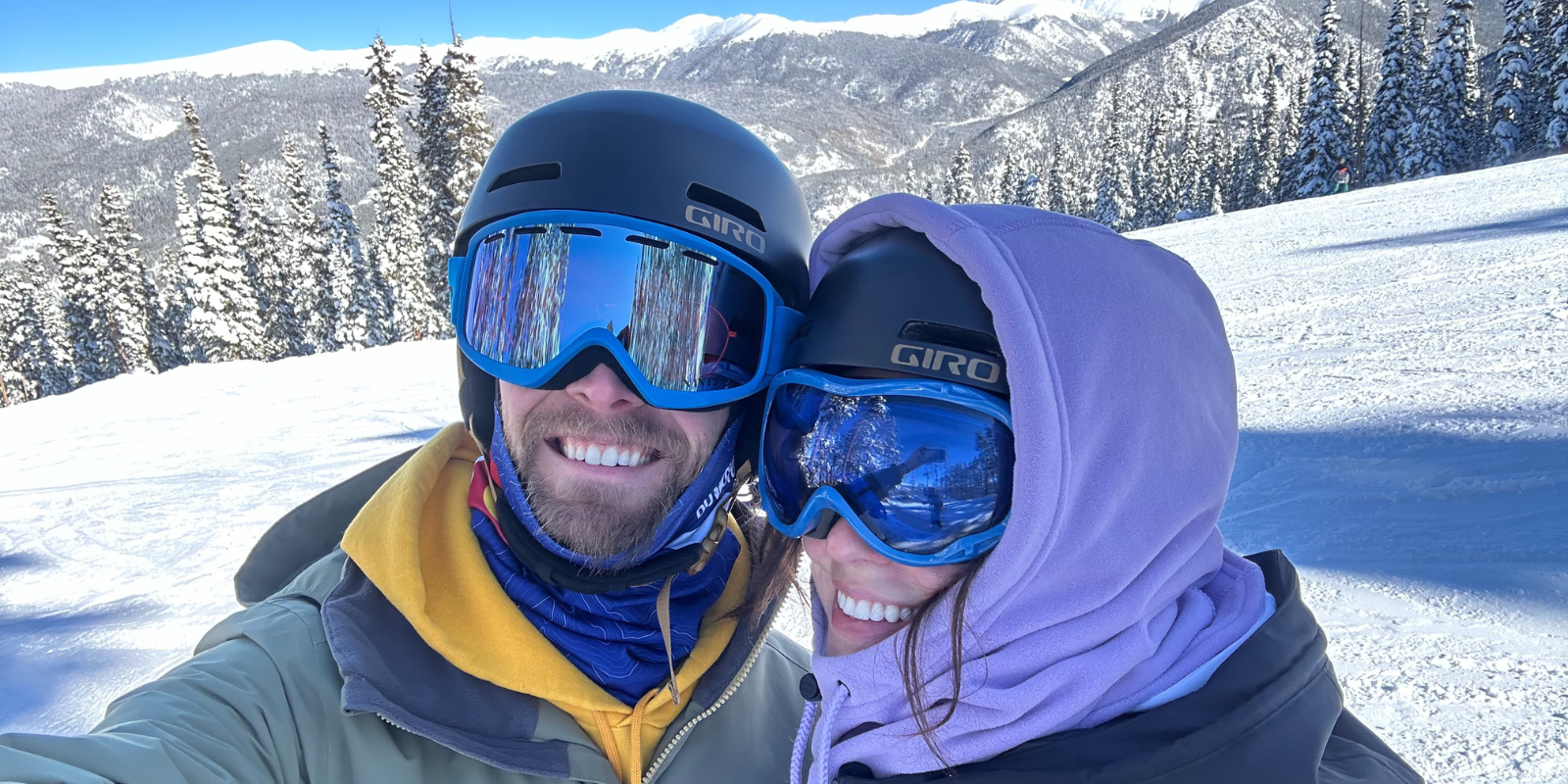What is it like working so closely with one of Colorado’s major-league teams?
It's a real honor to be a part of it and to be able to care for these elite athletes and really contribute to their success. We cover not just the players, but also the players’ families, the coaches, the people in the front office, the back office — we represent the whole team. The other thing that's interesting is, when we cover games, we cover the visiting team too. So, if a visiting team member or coach or anyone gets injured, we will go see them in their locker room and take care of them. We also work with the referees, so probably a couple of times a year, I'll treat a referee who is having an issue with their eyes.
What are some of the reasons that the players, the staff, or their families are coming in between games?
It could be anything. Sometimes we see people for routine eye exams. Other times, it's someone who has an infection or people who are interested in procedures like LASIK surgery. It just depends. It might be a player who wears contacts and needs an update on their contact lenses. If they've had trauma during a game, then we go down a different path. Not everything we see in the clinic is necessarily player-related, but anyone who's part of the team, or their family members, can see us for any of those reasons.
Were you an Avalanche fan before this? Or have you become one?
I was a big fan before, so that's why for me, it's next level. You don't go to medical school and into ophthalmology thinking you’ll get to do stuff like this. It’s been a real thrill to be a fan, as I was, and then be able to do this.
How does a typical game go when you are on duty?
When we first arrive, we check in at the locker room and make sure everything is stable. We'll hang out there for a little bit so that the team can grab us if they need us, and then once the game starts, we have seats in the stands. We'll watch the game, then we come back between periods. If there's an obvious issue during the game, we'll go back to the locker room, or they'll come find us. And then we go back after the game to make sure everything's OK, and then we go home. It's such a unique experience, but it can be stressful too. When a player has trauma to the eye, it's obviously a serious situation. Things can escalate quickly.
How often does that happen, that a player has an injury you must address in the moment?
I don't want to jinx anything, but every season there are a few players who definitely need an urgent or semi-urgent intervention, whether it's suturing a lid, a corneal abrasion, or other direct trauma to the eye.
If it happens during the game, is the goal to sew them up and get them back on the ice as quickly as possible?
It depends on the injury. Sometimes we do that. Sometimes we'll wait to sew them up until after the game. These players are really tough. It's amazing. They will often ask us to just put Steri-Strips (thin adhesive bandages) on the wound until after the game. There was one instance where I had to take a player from the visiting team to the hospital because he had a significant injury to the eye, and I wanted to do an ultrasound to make sure that everything was OK. That's the one thing we can't do at the arena – we can do a lot of suturing, but we can't do an ultrasound. We took him to the emergency department at UCHealth and did an ultrasound and then got him on his way. He was OK, and I actually drove him to the airport. It was an interesting night.
What are the most common injuries you see? A puck to the eye?
A stick to the eye is the more common one that we see. The players wear a face shield, or a partial shield, so it's hard for a puck to get up there. But it's not hard to get a stick up underneath the shield. We've also seen some issues from fighting – some fractures and things like that – and even some fractures from direct hits.
What was it like when the team won the Stanley Cup last summer? Did you get to be part of some of the festivities?
All the leads got to participate. The lead for each service — dentistry, ophthalmology, sports medicine, etc. — got to participate in the parade and the party they had afterward. It was really cool that we could be part of that. It's one of those once-in-a-lifetime experiences you think is never going to happen.
What was your favorite part of the whole Stanley Cup experience?
Watching them win, and then to be a part of the celebration and see their genuine reactions close up. They work so hard, and it is so difficult to pull off with injuries and having to be consistently winning all season. It was great to see the weight off their shoulders up close. It’s a very intimate thing to see two guys looking very closely at the cup and talking about how special it was for them. They worked their whole lives for this. That, for me, was the most special part, to have that access and to see on a very intimate level, how special it was for them and how hard they work to get there. You see the ups and downs of the season, and then to finally get to a place where they won the whole thing. It was amazing.




.png)
